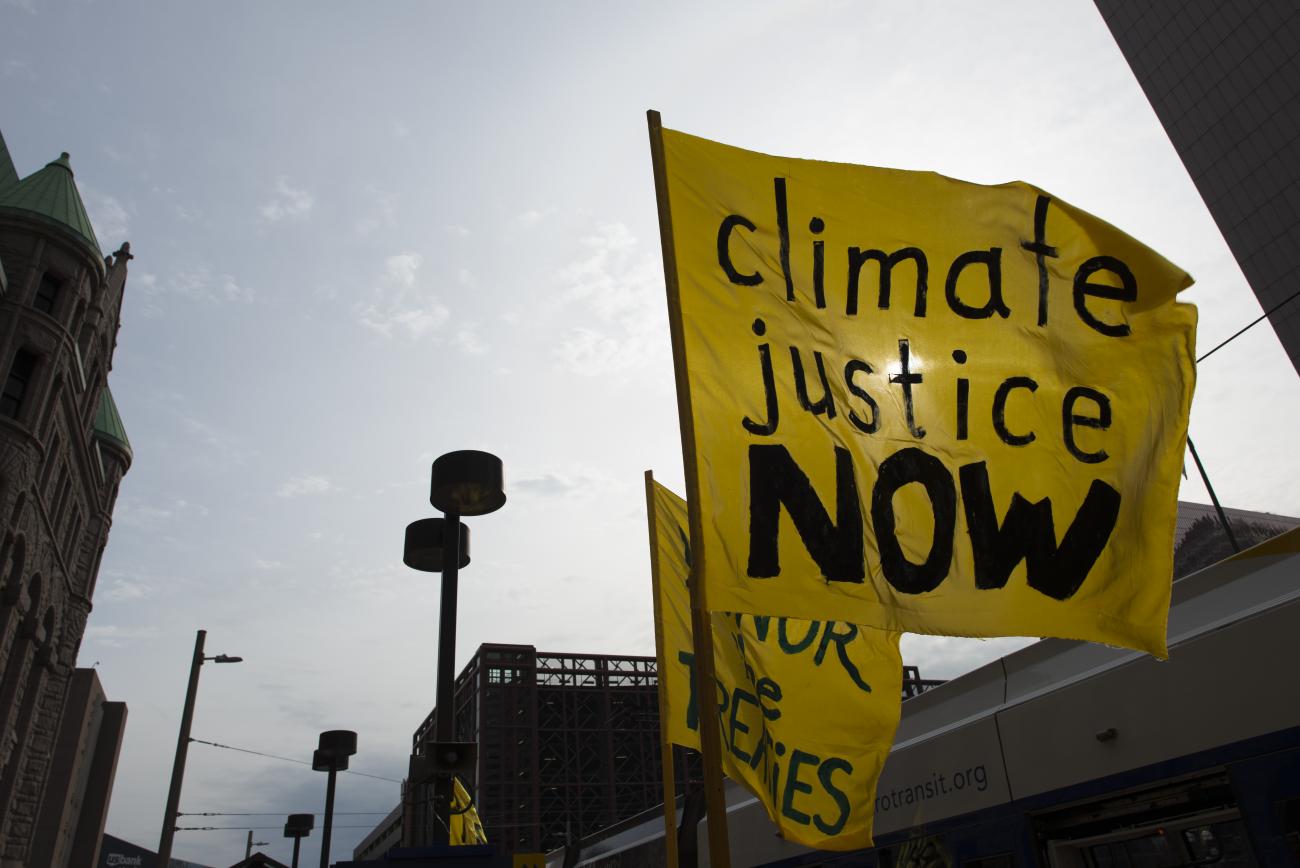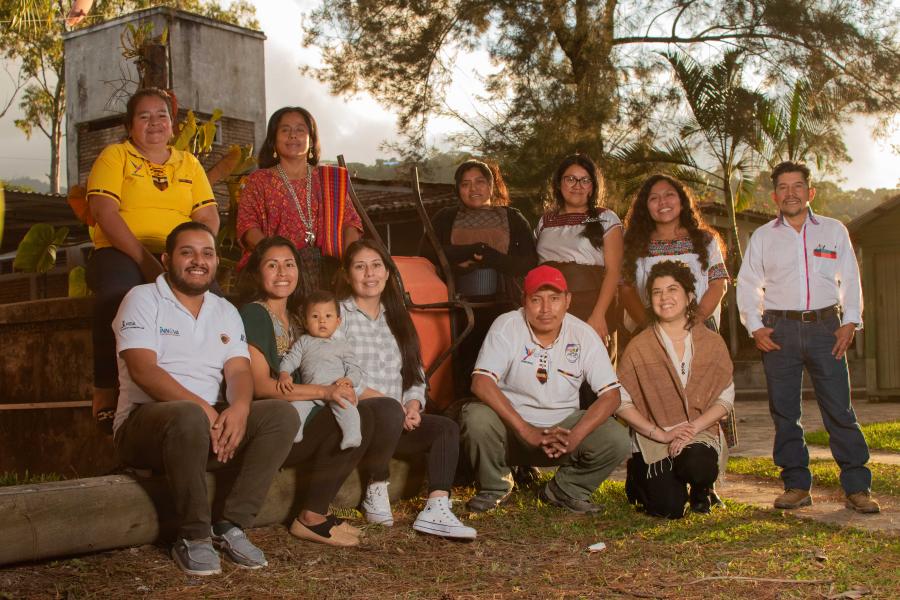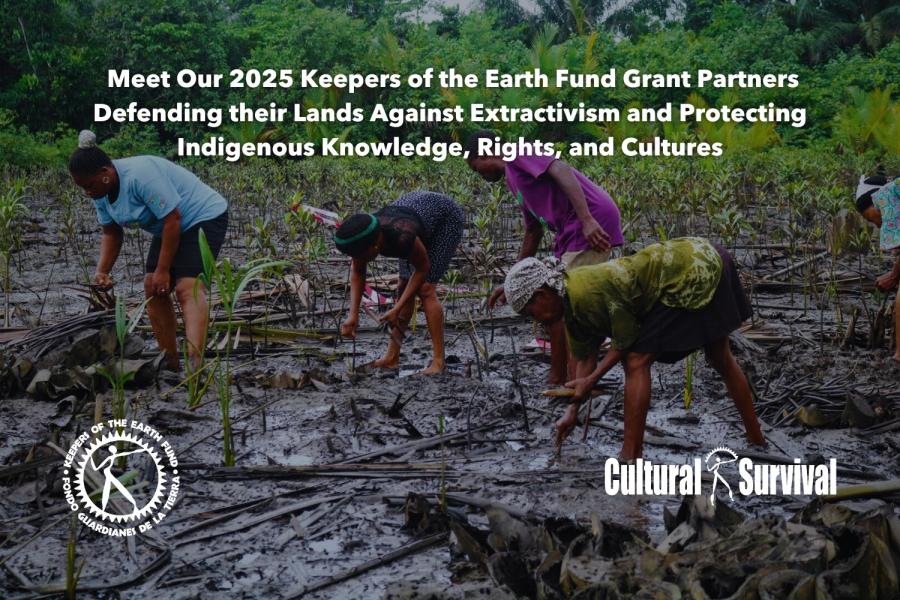
Photo by Fibonacci Blue on flickr.
Indigenous Peoples and their traditional knowledge and practices are essential to reaching the United Nations 2030 Sustainable Development Goals and to climate change mitigation, says the International Labour Organization (ILO), a United Nations specialized agency dedicated to the rights of workers, employment opportunities, and social justice. In 2016, 370 million peoples all over the world identified as Indigenous or Tribal Peoples. This 5% of the world’s population is estimated to care for 22% of the world’s surface and protect 80% of the world’s remaining biodiversity.
Despite their invaluable role in sustainable development and protecting the environment, Indigenous and Tribal Peoples remain widely disadvantaged, making up 15% of the world’s poor. Indigenous and Tribal Peoples are commonly denied access to a decent education, employment, and social mobility due to discrimination and unequal resource distribution. Social, cultural, economic, and political differences have drawn a line between Indigenous Peoples and governments, leaving Indigenous Peoples out of important decision making processes.
Additionally, Indigenous and communities in states of poverty are disproportionately affected by climate change. According to discussions at the United Nations Permanent Forum on Indigenous Issues in July 2018, Indigenous Peoples are among the first to experience the direct consequences of climate change, due to their dependence on and relationship to the environment and its resources. This occurs even though Indigenous communities are some of the most involved in the mitigation of climate change and in protecting the environment. A recent study in Brazil, for example, showed that deforestation on land managed by Indigenous Peoples with protective rights over their lands was 1% while deforestation on unprotected land was 7%. Recent examples of natural disasters highlight the drastic effects of climate change on Indigenous communities, such as landslides in Myanmar that have destroyed Indigenous Peoples’ homes, and droughts in Africa’s Kalahari Basin that debilitate the traditional herding practices of Indigenous Tribes.
Yet, Indigenous Peoples who advocate for environmental conservation and against extractive projects that contribute to climate change also face threats, criminalization, violent attacks, and even death. In March 2016, the world was shocked by the death of Berta Caceres, an Indigenous Lenca activist from Honduras who won the Goldman Environmental Prize in 2015. Caceres was killed in her home for her activism against the Agua Zarca dam, a project that threatened traditional Indigenous lands. It took two years until the first arrest was made in her murder case. While Caceres’ case was high-profile due to her international recognition, the majority of attacks on Indigenous environmental activists remain in impunity.
The ILO reiterates the importance of Indigenous women such as Caceres in environmental conservation and in reaching the United Nations Sustainable Development Goals, echoing a discussion panel of Indigenous representatives at the July 2018 High Level Political Forum on Indigenous Issues. The forum commented on Indigenous women’s roles in sustainable development and the cultural knowledge Indigenous women hold and pass down to future generations. The ILO promotes gender equality and the inclusion and empowerment of Indigenous women in development.
The ILO hosts the only open and ratifiable treaty on the rights of Indigenous Peoples, Convention 169. The convention, just as the United Nations Declaration on the Rights of Indigenous Peoples (UNDRIP), addresses the right to self-determination for Indigenous Peoples through the mechanism of Free, Prior, and Informed Consent. In contrast to the UNDRIP, however, Convention 169 is a binding document with legal obligations for the parties involved. For a brief overview of the ILO’s support of the involvement of Indigenous Peoples in the SDGs and climate change mitigation, click on the video below which addresses the subject, released by the ILO in August 2016.



